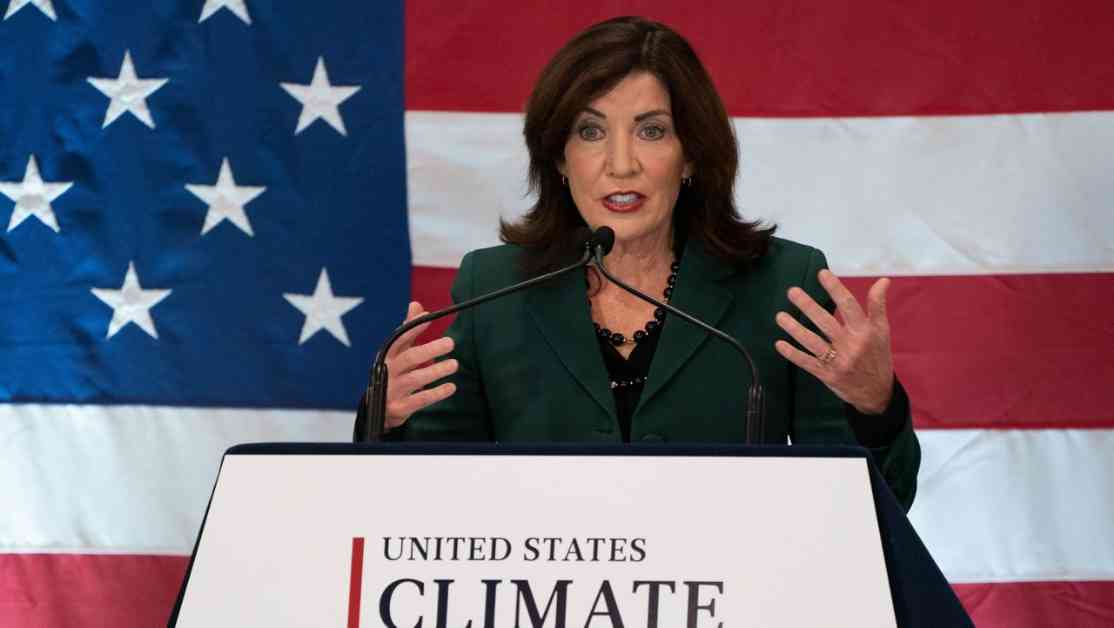Gov. Kathy Hochul began climate week in Midtown by announcing a significant investment in New York’s workforce training related to offshore wind projects. The state is allocating $2.3 million to fund a 500-person wind energy apprenticeship program, led by the International Brotherhood of Electrical Workers union.
Hochul emphasized the importance of finding a balance between economic growth and sustainable energy practices to create thousands of jobs. Despite New York’s vision of transitioning to a green energy future by phasing out fossil fuels, the process has been challenging due to various obstacles.
Doreen Harris, President and CEO of the New York State Energy Research and Development Authority, highlighted the infrastructure and financial challenges faced by green energy projects. These challenges include interest rate fluctuations and supply chain constraints.
While some offshore wind projects were previously canceled, one is now underway, with two more in the pipeline expected to be completed by 2026. Harris expressed optimism about the future of offshore wind energy projects despite past setbacks.
In addition to investing in wind energy initiatives, Hochul addressed the issue of congestion pricing in New York City. A report from State Comptroller Thomas DiNapoli raised concerns that pausing congestion pricing could impact the Metropolitan Transportation Authority’s climate resiliency measures for subways.
Hochul assured that the state remains committed to achieving its energy and climate goals, despite facing legal challenges regarding congestion pricing. She acknowledged the need to balance environmental objectives with the economic realities faced by New Yorkers.
Apart from wind energy projects, New York is also working on a massive transmission line from Canada to New York City to enhance the energy infrastructure. The goal is to increase the state’s energy production significantly and transition towards renewable energy sources.
Justin Driscoll, President and CEO of the New York Power Authority, explained the challenges faced by the state in balancing renewable energy generation between upstate and downstate regions. The focus is on shifting towards more renewable power sources in downstate areas historically reliant on fossil fuels.
Although progress towards achieving the mandates outlined in a 2019 climate law has been slow, Hochul reaffirmed her commitment to advancing green energy initiatives in New York. The state’s efforts to invest in renewable energy projects and workforce training reflect a broader commitment to sustainable practices and economic growth.

